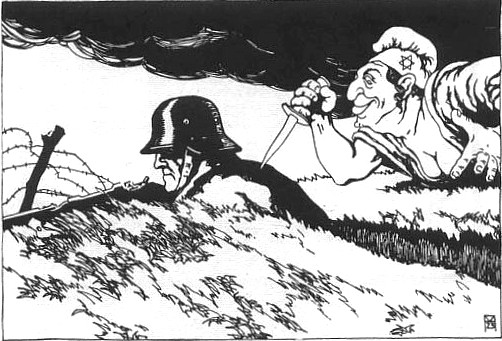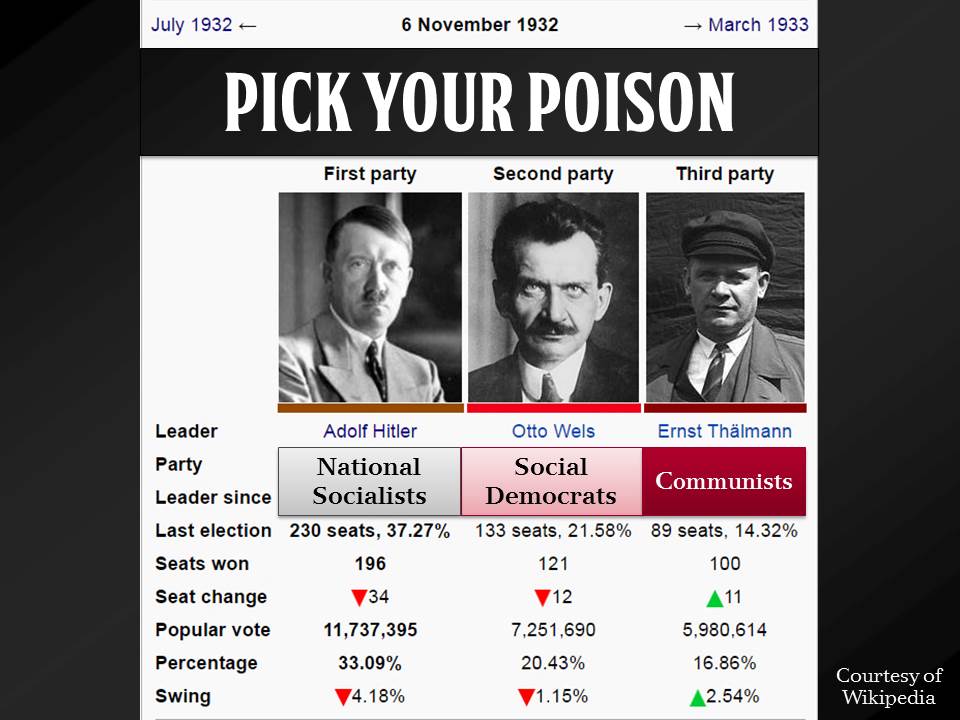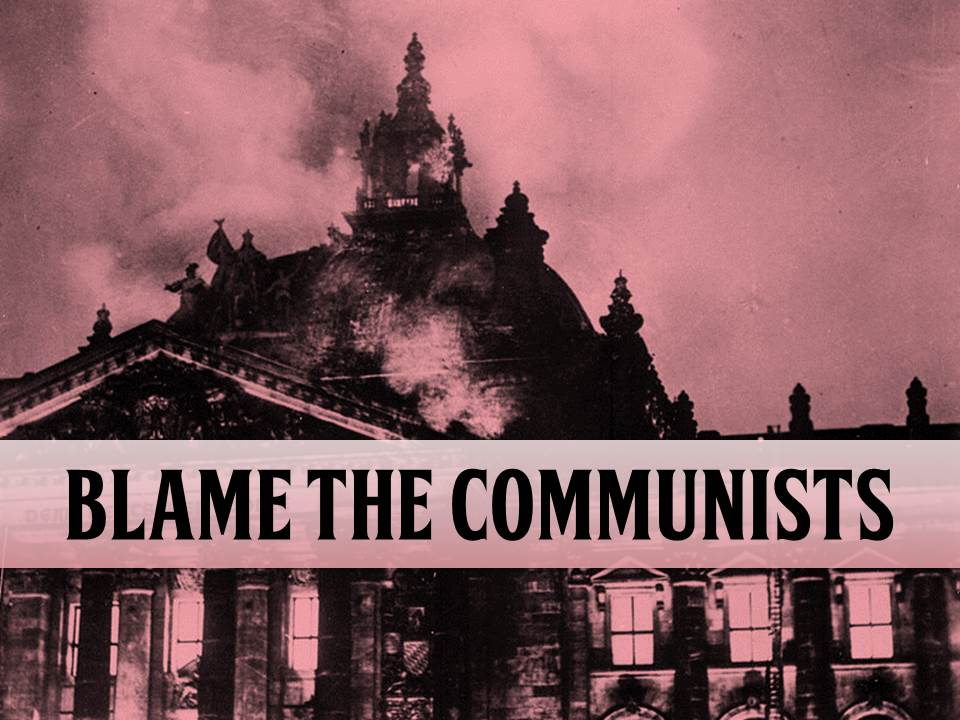|
Adolf Hitler's Rise to Power is a frequently searched topic on Google and YouTube, but until this week, there was little to be found in terms of an academic lecture on the subject. This week, I released a half hour lecture on Hitler's Rise to Power that is divided into three parts and is availabe on my YouTube channel.
Hitler and the Nazi Party
Nazi Propaganda
Nazi propaganda often depicted idealized forms of storm troopers and workers in addition to spreading messages of Germany's liberation from Jewish oppressors and foreign powers. Even with the help of its massive propaganda arm, the National Socialists posted a pitiful ninth place finish in the 1928 election. During the "Golden Age" of the Weimar Republic, the vast majority voters were not at all receptive to the Nazi Party's radical message. However, that would change with the onset of the Great Depression in 1929.
Hitler as Chancellor of Germany
Hitler's final move was to pass the Enabling Act, a constitutional amendment that allowed Hitler and his cabinet to dictate laws without the approval of the Reichstag. The Enabling Act required 2/3 of those present to pass, which the Nazis achieved by invalidating the seats held by arrested Communists and by securing the support of the Catholic parties (presumably by promising to protect the rights of German Catholics and Catholic schools) and the German National People's Party. Only the Social Democrats voted in opposition. The following year, Hitler succeeded in dissolving all other political parties and placed himself at the head of a single party state.
5 Comments
Eva
8/28/2016 05:20:17 pm
We can agree with Hitler in one thing: the communists were up to no good.
Reply
Eva
8/28/2016 05:20:51 pm
We can agree with Hitler in one thing: the communists were up to no good.
Reply
Eva Gewdin
8/28/2016 05:21:38 pm
We can agree with Hitler on one thing: the communists were up to no good.
Reply
Mark
10/5/2016 09:33:18 am
We can agree with Stalin on one thing: the Nazis were up to no good.
Reply
Churrr Sir
8/14/2019 02:48:13 am
Haha Gay
Reply
Your comment will be posted after it is approved.
Leave a Reply. |
Tom RicheyI teach history and government Archives
May 2023
Categories
All
|





 RSS Feed
RSS Feed